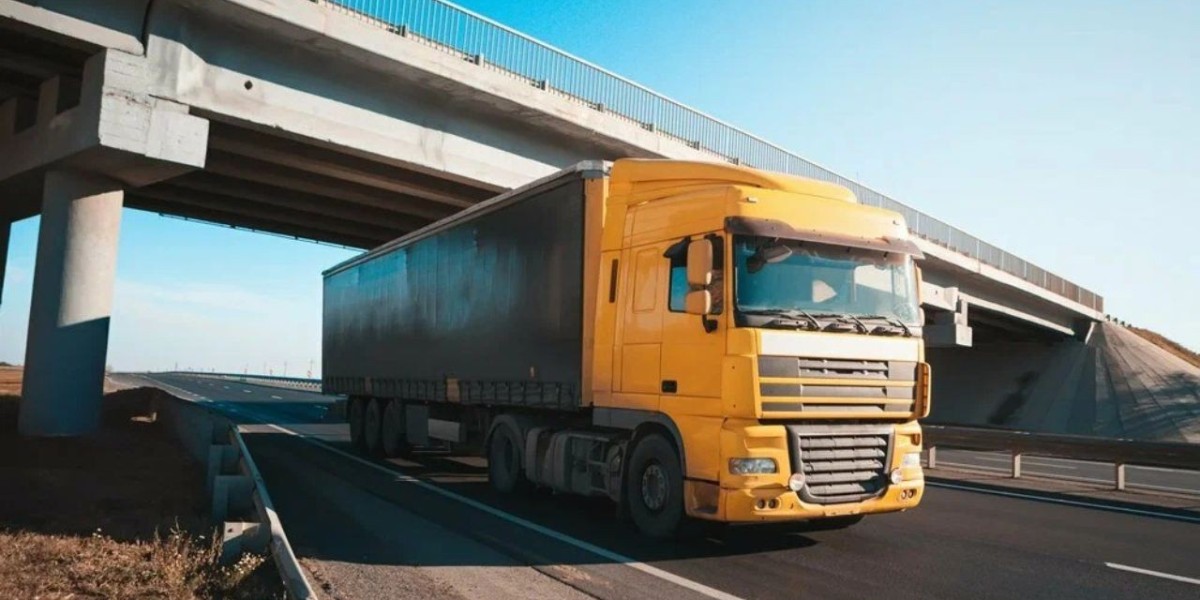As the economic partnership between the UAE and Saudi Arabia continues to flourish, the role of land freight services has become increasingly vital. From daily consumer goods to complex industrial equipment, cross-border road transport between Dubai and KSA supports multiple sectors and plays a pivotal role in regional trade.
Unlike air or sea shipping, land freight provides cost-effective and timely delivery options, especially for businesses looking to streamline logistics without compromising on reliability.
The Backbone of GCC Trade
Dubai, as a logistics hub in the Middle East, is ideally positioned to serve major cities in the Kingdom of Saudi Arabia. The GCC’s interconnected road network enables smooth cargo flow between the two nations. This has made land freight one of the most trusted modes of transportation for companies seeking flexibility, speed, and efficient customs procedures.
Whether it’s pallets of retail goods, FMCG products, medical supplies, or construction materials, land freight ensures that shipments are delivered safely and on time.
Types of Land Freight Services Available
Depending on the type of cargo and urgency of delivery, logistics companies offer different land freight solutions:
- Full Truck Load (FTL): Perfect for big loads that fill a whole truck.
- Less Than Truck Load (LTL): Suitable for smaller consignments that share space with other cargo.
- Temperature-Controlled Trucks: For perishable or sensitive goods that require specific temperature settings.
- Flatbed Trailers: Used for transporting machinery or heavy equipment.
These flexible options allow businesses to choose services based on their needs and budget.
Key Advantages of Land Freight to Saudi Arabia
For numerous reasons, land freight is still the best choice:
1. Cost-Effective Shipping
Compared to air freight, land transport is much more economical. It’s the best solution for high-volume or heavy cargo without the high costs associated with air logistics.
2. Quick Delivery Times
Most shipments from Dubai to cities like Riyadh, Dammam, and Jeddah are delivered within 1–3 business days. The reliable highway infrastructure between the UAE and KSA ensures fast and predictable transit.
3. Real-Time Cargo Tracking
Modern logistics providers equip their vehicles with GPS tracking systems, giving clients full visibility over their shipments at every stage of the journey.
4. Cross-Border Expertise
Customs clearance is one of the more complex aspects of international logistics. Reputable freight companies manage all documentation and clearance processes to avoid delays at the border.
5. Secure Handling and Transit
From professional packaging to trained drivers, land freight services are designed with cargo safety in mind. Vehicles are inspected regularly and follow international safety standards.
Industries Benefiting from Dubai-KSA Land Freight
Several industries rely heavily on road logistics between the two countries:
- Retail and E-commerce: Daily transport of goods to warehouses and retail stores in KSA.
- Pharmaceuticals: Time-sensitive and temperature-controlled delivery of medicines and medical devices.
- Automotive: Parts, tires, and accessories shipped to distributors and service centers.
- Oil and Gas: Equipment and materials needed for operations in Eastern Saudi Arabia.
- Construction: Steel, cement, tiles, and other heavy materials delivered to major construction sites.
Major Saudi Cities Covered
Land freight services from Dubai serve all major Saudi cities, including:
- Riyadh – Capital and major distribution hub.
- Jeddah – A commercial gateway to the west.
- Dammam – Key industrial city near the UAE border.
- For religious and seasonal cargo movements: Makkah and Madinah are used.
- Abha, Tabuk, Al Khobar, and Hail – For reaching clients across all regions of KSA.
How the Process Works
Here’s what typically happens when you book a land freight service from Dubai to Saudi Arabia:
- Booking and Pickup: The cargo is collected from your warehouse or facility.
- Packaging and Labeling: If needed, goods are packed according to customs and handling standards.
- Documentation: Export/import papers and customs forms are prepared.
- Transit: Cargo is loaded onto appropriate vehicles and transported to KSA.
- Border Clearance: Customs documentation is submitted and verified.
- Final Delivery: Goods are delivered to the destination address and confirmed with proof of delivery.
Choosing the Right Logistics Partner
Selecting a reliable land freight provider is crucial. Here’s what to look for:
- A proven track record in UAE–KSA logistics
- Transparent pricing and no hidden costs
- Trained drivers and a well-maintained fleet
- Responsive customer service
- Real-time shipment tracking and updates
- Insurance options for added security
FAQs
- How much time does it take to convey cargo by road from Dubai to Riyadh?
Typically, road freight to Riyadh takes 1 to 3 business days depending on clearance times and cargo type. - Can I get real-time shipment tracking?
Yes, most professional freight providers offer real-time tracking through GPS and regular status updates. - What are the customs requirements?
Customs documentation includes invoices, packing lists, certificates of origin, and sometimes permits depending on the goods. Logistics providers handle all of this. - Is land freight suitable for fragile or high-value goods?
Absolutely. Secure packing, shock-proof vehicles, and insurance options make land freight safe for delicate cargo. - What are the most common cargo types moved by road between Dubai and KSA?
Everything from electronics, clothing, machinery, perishables, and raw materials are shipped regularly via road.
Conclusion
The Land freight services from Dubai to Saudi Arabia play a critical role in connecting the Gulf’s two largest economies. With reliable transit times, cost efficiency, and expert cross-border handling, this mode of transport supports a wide range of industries. Whether you're a manufacturer, wholesaler, or e-commerce seller, road logistics ensures your goods reach their Saudi destination swiftly and securely—making it an essential part of your regional supply chain strategy.



